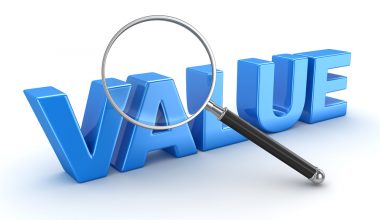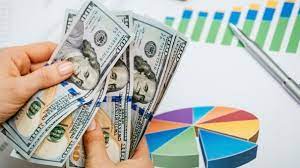Investing in rental property can be profitable and tricky at the same time, especially when buying rental property out of state. You may consider buying a rental property for investment out of state because there is no money down or you want to invest in an area where rental properties are in high demand. If you live in an area where real estate is expensive, this may seem appealing. One of the hottest states that has emerged as the best real estate market for buying investment property in the US is Florida. Several Florida cities, including Orlando, Tampa, and Jacksonville, have been named among the best places to buy a rental property for investment purposes. However, if you are smart, you can buy an investment property in Florida at the right time. Let’s look at some basic things you need to know before buying rental property for investment in Florida.
Is Purchasing a Rental Property Worth It?
Rental properties can be a good long-term investment if you have your finances in order, especially as interest rates rise. Even if it’s just a few dollars at first, a rental property should bring in money every month.
What You Should Know Before Buying Rental Property for Investment in Florida
For a variety of reasons, the Florida real estate investment market continues to be a hotbed of activity. Palm Coast is an ideal city south of Jacksonville for those looking for beachfront properties without the high price tag. Are you a starter looking for a small town with a low entry fee? Then Fort Meade can come through. If you’re more of a city person, Tampa attracts a large number of new residents from other states, and it has a low unemployment rate.
Without a doubt, you will enjoy buying rental property for investment purposes in Florida. To achieve your targets, you must be acquainted with some of these nuggets below.
#1. Adequate Training
Real estate investing isn’t as simple as buying a house and then selling it a few months later. It takes training and the wisdom of someone who has been there and done that. You might be able to find some training through one of Florida’s many real estate investing clubs. However, this necessitates time spent attending networking events and meetings, which are frequently held only once a month. The other attendees may also have the same level of experience as you do, or even less. It’s unlikely you’ll be able to connect with a mentor there anyway.
You require a comprehensive class that covers all aspects of real estate investing in less time than you will spend attending clubs. As an aspiring investor, it’s the only way to get started quickly.
#2. Searching for Solid Leads
When it comes to buying an investment property in Florida, many would-be investors try to find distressed properties at auction. You have to be careful because this can be a dangerous gamble. As soon as you have your heart set on a particular property, you must not let go of it until the auction is over. It is possible for the sale to be canceled before the auction, or even worse after you’ve put down your money.
The first Florida investment property you buy requires a steady flow of qualified leads. That means you’ll need to get the word out about your services so that people in need can come to you.
#3. Analysis of the Property’s Potential
When you buy an investment property in Florida, you only get one chance to get the valuation right. If you underestimate what you should pay for a property, the rehab costs, or the after-repair value, you may lose. There are numerous real estate investing tools available, but many only serve one or two functions and do not easily integrate with other tools. You should consider available options in order to find the property valuation tools that are best for your company.
#4. Have Enough Financing
Unless you have a large cash reserve, you’ll need to figure out how to fund the purchase and renovation of a Florida real estate investment property. Many new investors attempt to obtain an FHA 203(K) loan. To qualify, you must live on the property for a period of 12 months. The HomeStyle Renovation loan is offered by Fannie Mae, but it comes with a lot of scrutiny.
Hard money loans are the best and most commonly used type of financing for purchasing and renovating real estate investment properties in Florida. The value of the property serves as collateral for these short-term private loans. While these lenders consider your credit score when making a loan decision, the value of the property and your experience are more important. Even better is when you can get hard money lenders to compete for your deals.
Is It Profitable to Buy Rental Property?
Even though rental property can be a good way to make money through recurring income, rising property values, and tax breaks, there are also some risks to think about. For instance, the heating and cooling system could break down and need a costly fix.
Buying Rental Property Out of State
Rental property isn’t an option for everyone, especially those who can’t afford to buy a second home elsewhere. In some areas, housing prices are so high that adding to your real estate portfolio may be difficult. Adding real estate investments to your portfolio can be thwarted if you are outbid by cash buyers or if you are unable to secure financing to cover the high costs.
Luckily, there is a simple solution to this; buying rental investment property out-of-state. For those who live in an area where renting a home is prohibitively expensive, real estate investment is a viable option for everyone. Although there are advantages and disadvantages to every investment, you should be aware of these before making a decision.
Buying a rental property out of state may seem like an odd idea. Why would you make a long-term investment? How will you manage the property and find tenants? Some of the reasons you may think of buying rental property out of state are that there is no money down or you want to invest in an area where rental properties are in high demand. If you are buying rental property with no money down, property taxes and other costs are lower in some areas than in others. So, investing in multiple markets is a way for you to reduce your risk.
What to Look for if You’re Buying a Rental Property Out of State
There are some additional considerations to keep in mind when buying a rental property out of state for investment purposes. They include
#1. Job Growth
Job growth has a direct impact on rental prices. A thriving area will have a larger rental market, especially if new (large) companies relocate to the area. A growing population necessitates more housing. Not everyone will have the funds or the desire to purchase a home, but you can provide it for them and collect the cash flow.
#2. Proximity to Amenities
Convenience is a primary concern for most renters. Some want to be close to the biggest city, while others want to be close to their working place.
#3. Market Development
Take a look at the local market, both in the present day and in the past. A good metric is a number of days on the market (DOM). Most markets today have a DOM of 30 days or less, indicating a hot market. However, in regular times, you’ll see a DOM of 3 to 6 months. Investing in a market with more than that level of volatility may not be a good idea.
#4. Average Home Price in Relation to Middle Income
It’s a good idea to put your money into an area where the cost of a home is three to four times what the average resident makes. If the average home price is higher than the average income, many tenants may not be able to afford it.
#5. Rental Supply
In Florida, buying rental property in an area where there isn’t a high demand for rentals is counterproductive. You can use a site like Roofstock to check out the numbers. Calculate the demand for rentals in the area to see if you’ll be stuck with an investment that no one wants to pay for.
What Is the Biggest Risk of Owning a Rental Property?
Obtaining a renter who cannot reliably pay rent is one of the greatest hazards associated with owning rental property. Chronically late-paying tenants can be a persistent source of concern. The time and effort required to track down rent payments may cause your mortgage payments to be late, placing you in a financial bind.
Buying A Rental Property With No Money Down
There are a lot of rental properties out there, and you’d like to get started right away. Perhaps you’ve heard that rental investments can be a great way to create multiple streams of passive income or long-term wealth, and you’re eager to get started. And perhaps you have no money down to buy a rental property.
The truth is that, while investing in rental property usually requires some money upfront, there are numerous creative ways to raise that money. If you don’t have a lot of extra cash but want to start investing in rentals, here are some different options to consider.
#1. FHA loans
Let’s take a look at FHA loans first. Sure, you’ll need some money for these, but they can be a good alternative if you have some savings but not a lot of money sitting around waiting to be spent. The great thing about an FHA loan is that it allows you to get on the housing ladder with a low down payment.
If you have a good credit score, the current rate for a 15-year fixed-rate mortgage is 3.75 percent (usually at least 580). That works out to $3,750 for a $100,000 home. Much better than the 20% that most banks require for investment property. However, there is one caveat to this loan. You must first live in the house for one year before listing it as a rental. You could also get a mortgage for a multifamily unit, such as a duplex or triplex, live in one unit, and rent out the rest. Buying a four-unit multifamily complex is acceptable under FHA guidelines as well.
#2. House Hacking
First-time real estate investors sometimes use a strategy called “house hacking,” in which they buy a multifamily building, live in one unit, and rent out the others to make a profit on the deal. With this strategy, you’ll be able to live rent-free because the other occupants’ rental payments will (ideally) pay off your mortgage. As long as you can get a mortgage or other financing, this is an excellent method for helping you keep up with your monthly mortgage payments. And if you can get good financing, such as an FHA loan, it’s a good way to get you started. However, buying rental property in Florida with little or no money down won’t be a big deal
#3. Look for a Rent-to-Own House
You can get your first investment property off to a good start by taking advantage of this option. Rent to own involves the seller carrying the mortgage while you pay rent to them. Rent payments are applied to the purchase price of the property. You can rent out your home once you pay off the mortgage. Still, in today’s housing market, where housing inventory is tight and homes aren’t staying on the market for long, this type of option may be difficult to find, although it may be an option in some areas.
#4. Collateral-Based Lenders: Funding Options
Rules and regulations are strictly enforced by conventional and FHA lenders. They may not allow you to borrow money from the seller or anyone else if you’re buying a rental property with little or no money down. However, not every lender is as particular about the source of your down payment. Landlord lenders and hard money lenders typically lend based on the collateral, rather than you as the borrower. The good news is that they usually don’t mind where you get your down payment as long as it’s not from them.
You can borrow the down payment from somewhere else if you use a landlord lender or another collateral-based lender. Friends, family, credit cards, personal loans, the seller, your retirement account; you can put it anywhere.
Some investors take out a personal loan for the down payment months in advance, then borrow a purchase-rehab or landlord loan from Visio when they find a good deal. In their checking account, the money needed for the down payment is already in place.
What Is the Best ROI for Rental Property?
A good return on investment for a rental property is normally greater than 10%, but 5%-10% is also acceptable. However, considering the upfront costs of purchasing a property, the ROI may be smaller in the first year. Since their average list price is 25% lower than turnkey homes, fixer-uppers may offer larger upfront savings.
Conclusions
I hope you have learned the basic things you need to know before buying rental property for investment in Florida.
Buying Rental Property FAQs
Is buying rental property in Florida a good idea?
According to statistics, the Florida rental property market is currently among the most profitable investment opportunities available today. There are numerous indicators that buying rental investment property in Florida is a rewarding experience. For example, the state provides a lucrative return on investment in real estate.
How much do you have to put down on a rental property in Florida?
Most lenders require a 20% downpayment for the first investment property, with higher down payments required for properties two through four.
How much profit should I make on a rental property?
In terms of profitability, the 2 percent rule of thumb is a good starting point. It makes the case that if your rent is 2% of the purchase price, you are more likely to generate positive cash flow.
Can I put less than 20 down on an investment property?
Traditional financing from a lender will generally require a down payment of at least 20%, as mortgage insurance does not cover investment properties.
Related Articles
- MORTGAGE RATES FOR INVESTMENT PROPERTY: Current Mortgage Rates for Investment Property
- RENTAL PROPERTIES: Tips for Profitable Rental Properties Investing
- RENTAL AGREEMENT: Forms, Templates & Best US Practice (Detailed Guide)
- RENTAL AGREEMENT: Forms, Templates & Best US Practice (Detailed Guide)
- SMALL BUSINESS GRANTS FLORIDA: Top picks in 2022
- How To Buy A House With Bad Credit: Detailed Guide In 2022






